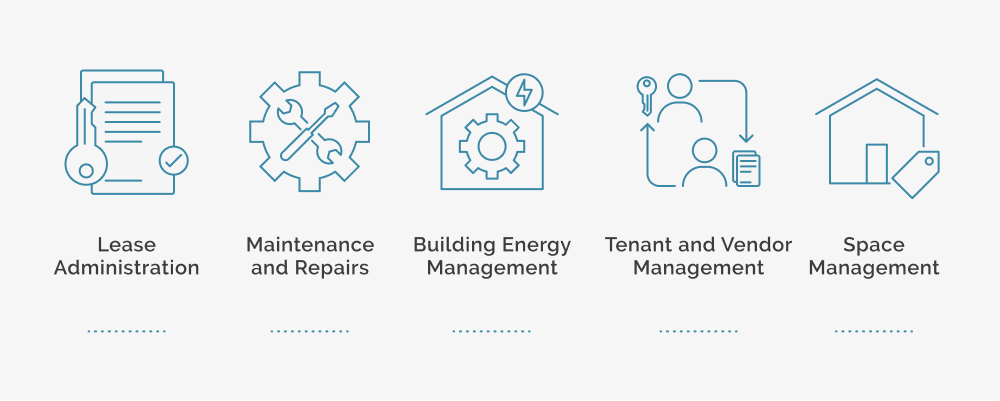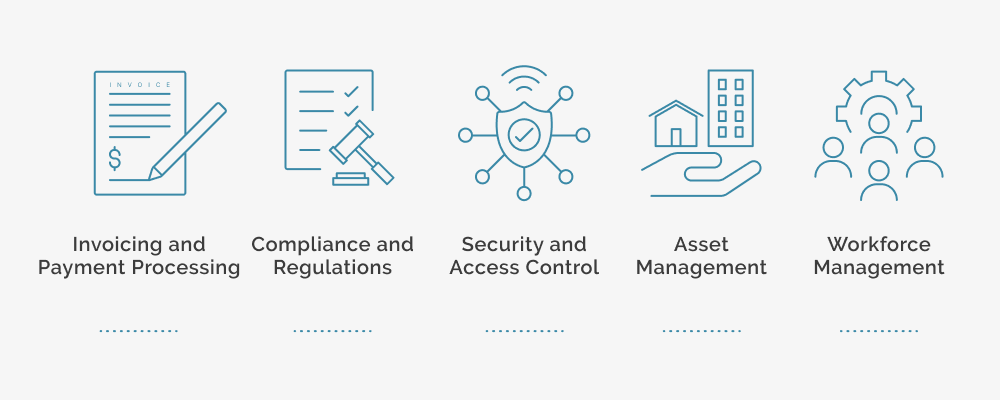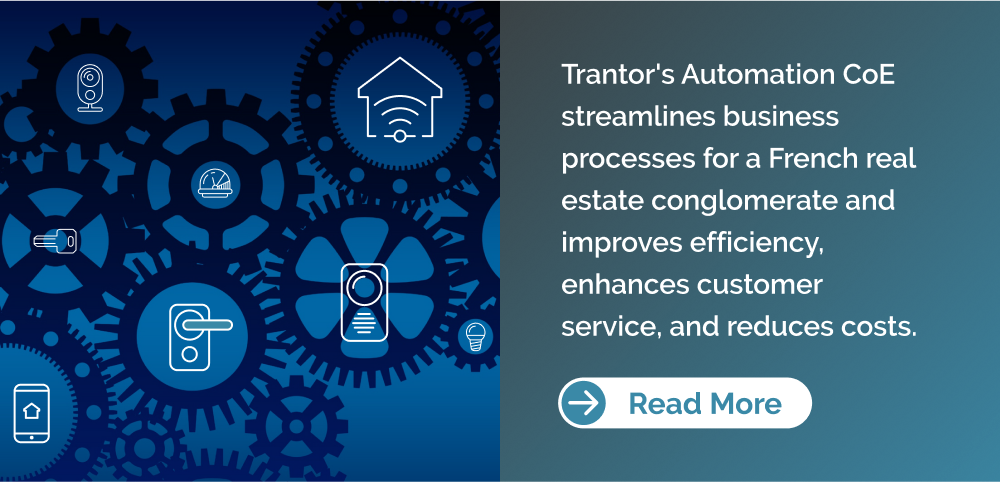RPA, zBlog
Real Estate Automation: Top 10 Use Cases of RPA in Real Estate and Facility Management
trantorindia | Updated: January 27, 2023

Real estate and Facility management are two of the most important aspects of running a successful business. These industries are responsible for maintaining and managing physical assets such as buildings, properties, and other infrastructure. With the increasing demand for cost-effective and efficient solutions, many companies are turning to Robotic Process Automation (RPA) to streamline their operations and improve their bottom line.
RPA is a technology that allows companies to automate repetitive and time-consuming tasks, such as data entry, by using software robots. These robots can be programmed to mimic human actions and work alongside human employees, freeing up time and resources for more critical tasks.
A recent study shows that the global RPA market is expected to grow at a CAGR of 24.3% from 2020-2025. The increasing adoption of Robotic Process Automation in various industries, including legal, real estate and facility management, drives this growth.
This blog post will look at the top 10 use cases of RPA in real estate and facility management, with real-life examples of each use case. We will see how RPA can help companies automate their operations, save time and money, and improve their bottom line.

- 1. Lease administration: RPA can automate the process of tracking and managing leases, including tasks such as rent calculation, renewals, and lease expirations. This can save time and reduce errors for real estate companies and facility managers. For example, a large commercial real estate firm used RPA to automate its lease administration process, resulting in a 50% reduction in errors and a 40% increase in productivity.
- 2. Maintenance and repairs: RPA can automate the scheduling and tracking of maintenance and repairs for buildings and properties. For example, a facility management company used RPA to automate its maintenance and repair process, resulting in a 30% reduction in downtime and a 15% increase in customer satisfaction. A real estate company integrated RPA with its CMMS software to automate work order management, which resulted in a 20% increase in efficiency.
- 3. Building energy management: RPA can automate monitoring and controlling building energy usage, including HVAC, lighting, and other systems. This can lead to energy savings and cost reduction for real estate companies and facility managers. A large real estate company used RPA to automate energy consumption tracking and reporting, resulting in a 10% reduction in energy costs.
- 4. Tenant and vendor management: RPA can automate tasks such as communication and coordination with tenants and vendors. This can improve efficiency and reduce errors for real estate companies and facility managers. A property management company used RPA to automate tenant and vendor communications, which resulted in a 20% reduction in response time and a 15% reduction in errors.
- 5. Space management: RPA can automate tasks such as tracking and managing space usage, including occupancy and availability. This can improve efficiency and reduce errors for real estate companies and facility managers. A commercial real estate company used RPA to automate its space management process, which resulted in a 25% increase in occupancy rate and a 10% reduction in errors.
- 6. Invoicing and payment processing: RPA can automate invoicing, processing, and tracking of rent and other payments. This can save time and reduce errors for real estate companies and facility managers. A property management company used RPA to automate their invoicing and payment processing, which resulted in a 30% reduction in errors and a 15% increase in payment processing speed.
- 7. Compliance and regulations: RPA can automate tracking and compliance with regulations, including health and safety, environmental, and financial regulations. This can reduce errors and improve compliance for real estate companies and facility managers. A facility management company used RPA to automate its compliance and regulatory reporting, which resulted in a 40% reduction in errors and a 20% reduction in compliance-related costs.
- 8. Security and access control: RPA can automate tasks such as managing security and access control systems, including cameras, alarms, and other systems. This can improve security and reduce errors for real estate companies and facility managers. A commercial real estate company used RPA to automate access control and security systems, which resulted in a 20% reduction in security-related incidents and a 10% reduction in security-related costs.
- 9. Asset management: RPA can automate tasks such as tracking and managing assets, including equipment, furniture, and other property. This can improve efficiency and reduce errors for real estate companies and facility managers. A facility management company used RPA to automate its asset management process, which resulted in a 25% increase in asset utilization and a 20% reduction in errors.
- 10. Workforce management: RPA can automate scheduling, tracking, and managing staff and contractors. This can improve efficiency and reduce errors for real estate companies and facility managers.


In summary, RPA can be used in real estate and facility management to automate various tasks, from lease administration and maintenance to space management, invoicing, and security. By automating these tasks, RPA can save time, reduce errors, and improve efficiency for real estate companies and facility managers, leading to cost savings and higher customer satisfaction.
Transform your property management and housing services with Trantor’s Robotic Process Automation (RPA) solutions. Our cutting-edge technology boosts productivity and increases efficiency in processes within the finance department, property management, and tenant screening. Trantor’s platform, which harnesses the power of artificial intelligence and machine learning, streamlines these tasks, reducing errors and labor costs. Moreover, by automating these processes, Trantor aims to improve accuracy and ease the workload of real estate professionals. Trantor is at the forefront of modernizing the real estate industry, making it more accessible and efficient for all.




